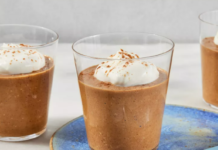 Fruit has become persona non grata in some circles because it contains sugar. And if, because of that, the only fruits you enjoy are lemons and limes, you’re missing out. Registered dietician and nutritionist Keri Gans, RDN, is here to quell your fears about the sugar content of fruit.
Fruit has become persona non grata in some circles because it contains sugar. And if, because of that, the only fruits you enjoy are lemons and limes, you’re missing out. Registered dietician and nutritionist Keri Gans, RDN, is here to quell your fears about the sugar content of fruit.
“I think with all the fad diets out there that promote low-carb eating, fruit has wrongfully gotten roped into the same category as foods whose carbohydrate content comes from added sugar,” Gans says. “However, carbs are not all created equal and too many individuals do not understand this.”
First of all, carbohydrates are not bad for for you. In fact, they are necessary for human function—along with proteins and fats, carbs are one of three main nutrients found in the food and beverages we consume. Your body breaks carbohydrates down into glucose, which is the key source of energy for your body’s cells, organs, and tissues.
When reading the nutrition label on any given food, the “Total Carbohydrates” amount is the sum of the three types of carbs: Sugar, starch, and fiber. Each of these gets further broken down—sugar, for instance, can either be added sugar (such as the sweetener used in Coke or cupcake frosting) or natural sugar (such as the sugar found in fruit or milk, aka fructose and lactose).












